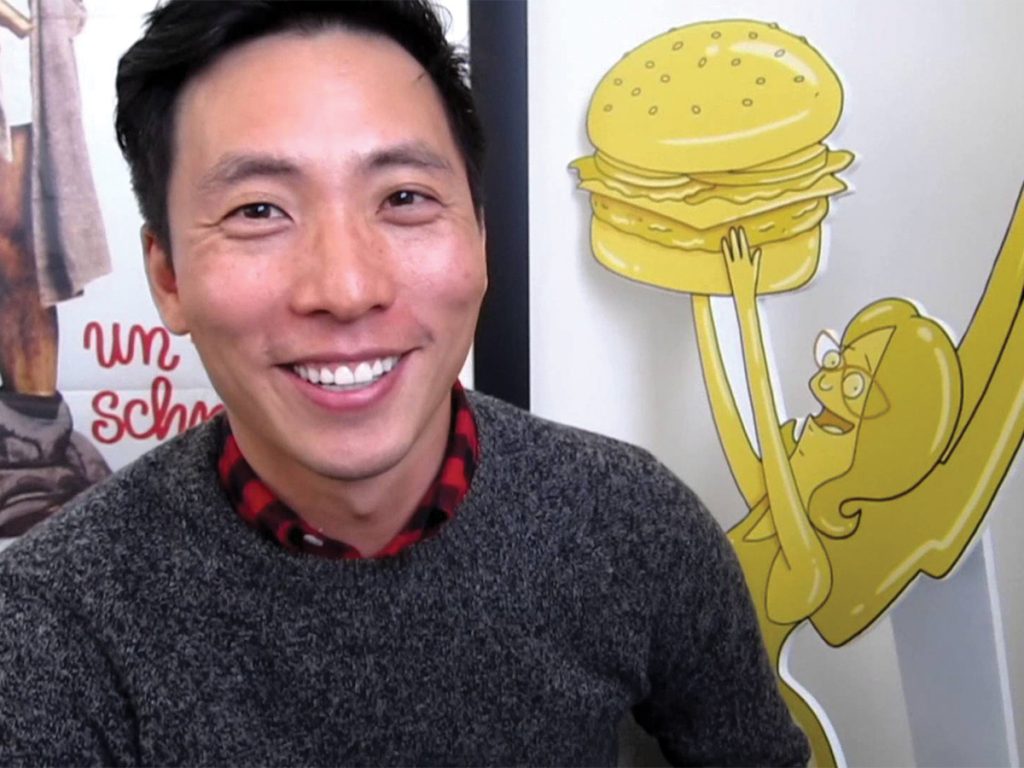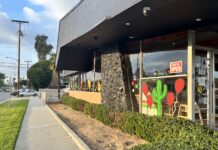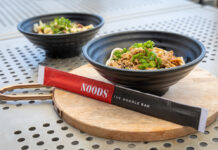
“Lord of the Rings,” that’s what Kelvin Yu compared to the current situation of Asian Americans, as well as children of other minorities in America today. The Asian American actor and writer, who wrote for the Emmy award-winning “Bob’s Burgers” and acted in the Golden Globe-winning “Master of None,” gave a speech on the night of Wednesday, Feb. 7 inside HUB 302 for an event hosted by UCR’s Asian Pacific Student Programs (APSP). Yu spoke to a very intimate group of about 15 attendees on his experiences as an Asian American in Hollywood and the interesting position he believes many Asian Americans find themselves in today.
“Every week that you go to the box office, it’s Spiderman, it’s Superman, it’s Lord of the Rings and I feel like the underlying theme in all these movies is: How to manage unmanageable power,” Yu explained. “When I think about Asian people and when I think about young people I feel like that’s where we’re at right now.” He expressed the balance between burden and privilege managed by first and second generation children of immigrants, the privilege being the sacrifices made by their parents in order to get to the US and the burden being the pressure of not letting those same sacrifices go in vain. Yu went on to compare this struggle to the fractured identity of many superheros, but according to him, instead of grappling with their identity as Peter Parker like Spiderman, Asian Americans struggle with honoring the past while simultaneously building a future for themselves.
He went on to introduce the four difficult choices that he claims that everyone must make in their life. They were the choices between achievement and evolution, finding a function or a purpose, organizing or integrating and seizing control or freedom. All of these are seemingly similar, but very different according to Yu. He explained that what makes these choices of paths so different, and simultaneously difficult, is that one set of options is accepting the path set before you, while the other involves taking risks and changing as a person.
As a producer, writer and actor in Hollywood, Yu has been very vocal about diversity and the portrayal of minorities in media, particularly based his personal experiences as an Asian American in Hollywood. His career started in Hollywood as an actor, with his first on-screen role being that of Freddy Gong in the television series “Popular.” Freddy Gong’s character was that of a stereotypical over-studious, socially awkward Asian teenager, and while Yu admits that the role was written very satirically, he does not believe general audiences saw it in the same light. Because he felt that no role offered to him truly fit his identity, Yu eventually leaned more toward writing, where he would eventually find success for his work on episodes of “Bob’s Burgers” as a writer and producer. After more than 5 years of writing for the show, Yu returned to acting when he was offered the role of Brian in “Master of None.” He believes that his character; as an ordinary, sexually capable, middle-aged Asian man is a remarkable step forward for both himself as an actor as well as true diversity in Hollywood.
In his speech, Yu explained that true diversity affects the story being told, not just the casting choice. “When you replace Amy Adams or Ryan Reynolds with Ali Wong or John Cho, you are forcing people to live in their shoes for two hours, and that is nothing short of revolutionary,” Yu stated. In an interview with NBC, he explained that many roles he played were out of touch with the true Asian American experience. While he wholeheartedly believes that the writers had good intentions, he claims they cannot fully understand the experience without having lived as a minority themselves. He went on to explain that diversity is portrayed well in shows like “Master of None” because it shows viewers the reality of being a minority, rather than another individual’s interpretations of what it might be.
Following Yu’s speech, a Q&A was held and followed up by a meet-and-greet, where the small group of attendees were allowed to receive hugs and take pictures.








